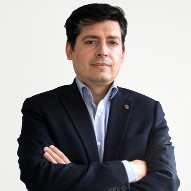Resource Recovery and Management for Sustainable Urban Development
A special issue of Sustainability (ISSN 2071-1050). This special issue belongs to the section "Sustainable Urban and Rural Development".
Deadline for manuscript submissions: 1 December 2024 | Viewed by 331
Special Issue Editor
Interests: waste management; circular economy; multicriteria decision analysis (MCDA); life cycle assessment (LCA)
Special Issues, Collections and Topics in MDPI journals
Special Issue Information
Dear Colleagues,
Resource recovery and management is a crucial aspect of sustainable urban development. As cities continue to grow and consume more resources, there is a pressing need to find innovative ways to recover valuable resources from waste streams and manage them efficiently. This not only contributes to environmental sustainability by reducing waste generation and our reliance on virgin resources, but also has economic benefits due to the generation of revenue from recovered resources. The scientific background of this research area lies in exploring the technologies, policies, and strategies for resource recovery and management, including, but not limited to, waste-to-energy conversions, circular economy principles, urban mining, and smart waste management systems.
The aim of this Special Issue is to bring together scientists and policymakers to share their research findings, innovations, and best practices related to resource recovery and management for sustainable urban development. By showcasing cutting-edge research in this field, this Special Issue aims to advance knowledge, foster interdisciplinary collaboration, and facilitate the adoption of sustainable practices in urban areas. The subject of resource recovery and management aligns with the scope of our journal, which focuses on sustainability, urban studies, and technology-driven innovations for a better future.
In this Special Issue, original research articles and reviews are welcome. Research areas may include (but are not limited to) the following:
(a) Technological advancements in resource recovery. This theme includes research articles focusing on innovative technologies for resource recovery from different waste streams, such as organic waste, e-waste, wastewater, and construction and demolition waste;
(b) Circular economy strategies for urban resource management. This theme encompasses research articles exploring circular economy principles in the context of urban resource management. Examples include studies on waste upcycling, closed-loop systems, and integrated resource management approaches;
(c) The socio-economic aspects of resource recovery and management. This theme explores the socio-economic implications of resource recovery and management initiatives in urban areas. Articles could analyze the cost-effectiveness of different resource recovery technologies, the economic opportunities associated with resource recovery, and the social acceptance of these initiatives;
(d) The tools and frameworks for decision making in resource recovery. This theme focuses on research articles discussing the decision-making tools and frameworks that aid stakeholders in making informed choices regarding resource recovery and management practices. Examples include life cycle assessments, environmental impact assessments, and decision support systems;
(e) Case studies and best practices. This theme showcases case studies and best practices from around the world, highlighting successful resource recovery and management initiatives in urban areas. Articles could focus on different scales, from neighborhood-level projects to city-wide implementations.
By including these thematic areas in this Special Issue, we aim to provide a comprehensive overview of the research and innovations in resource recovery and management for sustainable urban development.
I look forward to receiving your contributions.
Dr. Carlos A. Teixeira
Guest Editor
Manuscript Submission Information
Manuscripts should be submitted online at www.mdpi.com by registering and logging in to this website. Once you are registered, click here to go to the submission form. Manuscripts can be submitted until the deadline. All submissions that pass pre-check are peer-reviewed. Accepted papers will be published continuously in the journal (as soon as accepted) and will be listed together on the special issue website. Research articles, review articles as well as short communications are invited. For planned papers, a title and short abstract (about 100 words) can be sent to the Editorial Office for announcement on this website.
Submitted manuscripts should not have been published previously, nor be under consideration for publication elsewhere (except conference proceedings papers). All manuscripts are thoroughly refereed through a single-blind peer-review process. A guide for authors and other relevant information for submission of manuscripts is available on the Instructions for Authors page. Sustainability is an international peer-reviewed open access semimonthly journal published by MDPI.
Please visit the Instructions for Authors page before submitting a manuscript. The Article Processing Charge (APC) for publication in this open access journal is 2400 CHF (Swiss Francs). Submitted papers should be well formatted and use good English. Authors may use MDPI's English editing service prior to publication or during author revisions.
Keywords
- circular economy
- waste management
- sustainable urban infrastructure
- resource optimization
- industrial symbiosis





